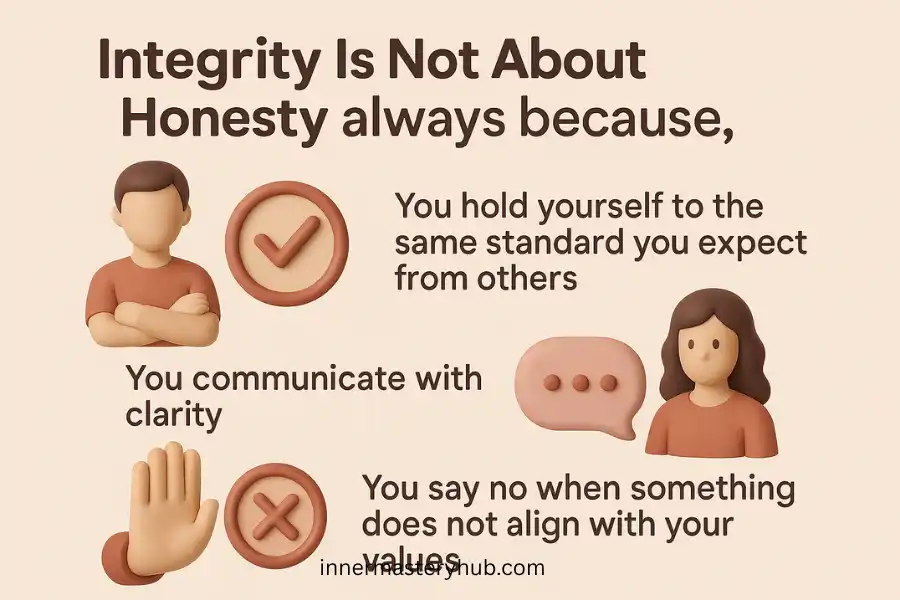The Convenience of Friendship: Real Bond or Just Easy Access?

Hello there! Have you ever thought about how practical friends can be? Friendship makes everything better, like that favorite hoodie you pull on a chilly day.
Unexpected coffee dates that lift your spirits or a companion who recognizes and values your eccentricities are just two examples of how friendships provide a level of comfort and ease that is difficult to obtain elsewhere.
This blog will examine how friendships can be our unsung heroes and how they make life easier. Get ready to experience the unmatched convenience of friendship and the life-changing power of meaningful connections.
What is the Convenience of Friendship?
A friend of convenience is someone with whom one creates or maintains a relationship for reasons other than emotional connection or common interests. Situational circumstances, such as class, workplace, neighborhood, or similar activities or purposes, often lead to these connections.
These partnerships may not be unfounded, but they lack the emotional bonding and understanding that characterize deeper friendships. Friends of convenience may communicate when their paths cross or when it’s convenient for both sides. Still, they may need more profound conversations and emotional support, or spend as much time and effort maintaining the relationship as they would a meaningful friendship.
These connections, such as a work colleague, study partner, or hangout buddy, are often helpful. They may fade away once they are no longer working or attending school together. These friendships must be distinguished from more profound and significant connections, based on emotional support, mutual care, and understanding.
Cultivating friends of convenience is just as important as any other friendship.
“Convenience doesn’t imply a friendship is somehow less than or inferior,” says the author of Perfectly Hidden Depression, now in its second printing and translated into seven languages. She believes they’re context-specific—such as work, school, or neighborhood extensions. Situational relationships are valuable and refreshing because we share their experiences and interests.
Cultivating the convenience of friendship is as vital as any other friendship because:
- They offer friendship and support.
- They can support you in tough times or chat with you when bored.
- They can teach you. Most convenient friends have distinct backgrounds and experiencesfromn close friends.
- This can broaden your horizons and help you develop.
- Life can be better with them. Lunch, errands, and events can be more fun with friends of convenience. They can also suggest new activities.
Seven signs you’re of the “convenience of friendship.”
Not all convenient friendships are harmful. Even if you remain “work friends,” being sociable with coworkers might boost your productivity and happiness. The same applies to anyone you frequently interact with, including your partner’s mutual friends or coworkers. The worst type of convenience in friendships makes you feel used or like the only one trying.

Here are seven red indicators of the convenience of friendship:
1. You don’t get good vibes when together.
It’s acceptable to feel bad with convenience pals. It’s good to trust your gut. It indicates a problem.
You may not like your convenience pals for several reasons,
They might sap your energy. Some people consume negative energy. These individuals may constantly complain or belittle you. You might get tired of being around these people.
They could be forgeries. Convenience buddies may be interested in what you can do for them. They could not be interested in your personal life or feelings. You may feel abused and undervalued.
They could be dishonest. Convenience buddies may spread rumors about you. They may need to be more trustworthy and erratic. This can make you nervous around them.
2. They always want money, assistance, or aid.
In the convenience of friendship dynamic, the person on the other side always wants money, assistance, or aid; it’s a red flag. They are likely taking advantage of you. Convenience buddies are those who ask for money, help with duties, or other assistance when they need it.
These connections sometimes feel one-sided, as they prioritize their own needs over shared interests or mutual support. The interaction can feel uneven or strained when it is focused on meeting their needs. These situations may make one feel used or unappreciated in the friendship because their primary interest is what they may gain from it.
3. They don’t value your opinion.
Your perspective often needs to be addressed in the context of a friendship dynamic. Your friends of benefit seem more concerned with their demands and interests than yours when you talk to them. Their concentration is on what they want, leaving little room for your opinions. It is discouraging to realize that the relationship is more about what you can do for them than respecting each other’s viewpoints.
4. They show no interest in your life.
It can be discouraging when a friendship feels like a one-way street, especially when your friend doesn’t show interest in your life.
When you tell someone about your newest experience or significant news, their eyes glaze over, or they swiftly switch the topic. Life updates are in an ‘uninterested’ folder.
Friendships are about give and take, but it might feel like your life narrative is decaying online when all the giving is toward them. Do you want genuine inquiry and interest in your life, not a red carpet and cameras every time you chat? It’s hardly much to ask.
True friendship is a beautiful mix of shared tales, support, and genuine interest in one another’s lives. It may be time to reassess your friendship when your claim is as fleeting as yesterday’s Snapchat tale. Because your life’s a grand narrative, too, it needs invested attention.
5. You’re not the first option for social events.
Have you ever made weekend arrangements and realized you’re more of a backup dancer than the lead? Getting “not the first option for social events” can seem like getting picked last in gym class.
It’s like looking on Instagram and seeing your buddies hanging around; the invite got lost in the mail. Or, “Wait, was my phone on silent, or did it ghost me?”
Being everyone’s second or third pick for social events can make you feel like the understudy in a play you never auditioned for.
Real friends are on each other’s speed dial for fun, right? However, it may sound off-key when you’re more like the emergency contact.
Naturally, life becomes busy, plans change, and things get complicated. If this keeps happening and you feel like the permanent runner-up, it may be time for a heart-to-heart conversation or to spend time with friends who genuinely appreciate having you as their VIP guest. You deserve front-row social seating!
6. They may disappear for long periods.
Has a pal gone Houdini on you? Their disappearance makes you wonder if they joined a secret club or became a hermit living off the grid.
You’re talking, planning, maybe even plotting your next adventure, and then poof! Silence on the radio. After weeks and months, they vanish. You ponder whether to organize a search party or distribute “Missing Friend” flyers.
Not that you want 24/7 updates or daily check-ins, but an occasional “Hey, I’m alive!” message wouldn’t hurt.
Life occurs, and people get busy or preoccupied. However, waiting for your disappearing act friend’s return is like solving a riddle without clues.
If your friend frequently disappears, you may need to talk or reevaluate your friendship. Because while a mystery is fun, being the recipient of a supernatural disappearance? Not the best local show.
7. They leave quickly for someone else.
You may not be in the convenience of a friendship dynamic if a flaky friend frequently cancels plans. They may be flaky with all their buddies. This isn’t good if you hear from others or see photos on social media that they deserted you to hang out with buddies. It’s usually a symptom of a bad friend who won’t lend a hand when needed.
What to remember when a convenience of friendship dynamic disappears
Though you may understand why a friendship ended, it can leave you feeling guilty or rejected.
When the convenience of the friendship dynamic disappears, it can be hurtful and confusing. It’s important to remember the following:
- The convenience of friendships often expires. These friendships usually stem from shared experiences, such as work or education.
- When mutual activities or circumstances change, the friendship may fail. It doesn’t define you.
- Your friend may be starting a new chapter. They may be preoccupied with new obligations or have met people who share their interests.
- Feeling sad or disappointed is okay. Even casual friendships are mourned. Feel your emotions, then move on.
How to break up a convenient friendship cycle
Avoiding conflict with friends without being rude or causing controversy is difficult for many people. Stopping a fair-weather friendship may involve less work and time. Many false, flaky, or fair-weather friends will leave when you stop maintaining the friendship.
If you see them at work, church, or anywhere else, you can be friendly without pretending to be best friends. You can grin, chat, and continue your business. It’s often that easy.
If your friend keeps messaging, asking for favors, or pulling you along, you may need a more honest chat. You can be honest and say they’re not a good buddy. Whether they try harder or not, you’ll benefit.
How to deal with the convenience of the friendship cycle
Here are some tips on how to deal with convenient friends:
- Define limits. Set limits with friends who are convenient to avoid feeling taken advantage of. This could involve refusing to lend them money, refusing to help them with homework if they haven’t tried it, or telling them you’re not available to hang out.
- You are being honest with yourself. Be honest about your feelings about convenient friends. If you’re not getting anything out of the friendship or feel like you’re always giving, pull away.
- Take nothing personally. Remember that handy friends don’t want to hurt. People who meet their requirements are all they want. Only take it personally if they sometimes prioritize you over others.
- Concentrate on other connections. Spend time with loving and supportive friends and family. Prioritize healthy, mutually productive connections.
- Befriend new people. Explore new hobbies and meet new people. More friends mean less reliance on convenient friends.
- Be straightforward. Explain why you’re ending the friendship. It’s unnecessary to elaborate, but be honest about how their actions have affected you.
- Stand firm. Don’t let them guilt-trip or sway your thinking. You must follow your decision.
- Avoid drama. If they argue or fight, leave. You owe no explanation.
- Allow yourself to grieve. Even if a friendship of convenience ends peacefully, it’s reasonable to feel a sense of sadness or disappointment. Feel your emotions, then move on.
Takeaway: the convenience of friendship
Convenient friendships can be lovely if they’re mutually beneficial and built on trust. Non-sincere friendships might become one-sided and break down during adversity.
FAQs about the convenience of friendship
What does “convenience of friendship” mean?
The “convenience of friendship” means a relationship maintained mainly because it’s easy or practical. People stay friends due to shared routines, proximity, or benefits, rather than deep emotional connection or commitment.
How can I tell if a friendship is based on the “convenience of friendship”?
You may notice you meet only when it’s convenient, support is one-sided, or communication fades when effort is required. These are signs the bond exists mostly out of practicality, not genuine connection.
What are the risks of a friendship built on the “convenience of friendship”?
The risks include feeling used, unsupported during challenges, or emotionally drained. Such friendships can fade quickly when the shared convenience—like work or location—disappears, leaving feelings of disappointment or loneliness.
Is a friendship based on the “convenience of friendship” always bad?
Not necessarily. Some friendships built on convenience can still be pleasant and useful. Problems arise only when expectations differ — if one person wants deeper emotional support while the other values only convenience.
Can friendships founded on the “convenience of friendship” evolve into deeper friendships?
Yes, they can. When both people start investing genuine time, empathy, and care, a convenient friendship can grow into a true, lasting one with mutual emotional support and understanding.
When should I reconsider a friendship that relies on the “convenience of friendship”?
Reconsider it if you’re always making the effort, feel unappreciated, or notice the friendship disappears when it’s no longer convenient for them. True friendships should feel balanced and emotionally rewarding.
How do I set boundaries in a friendship centred around the “convenience of friendship”?
Be honest about your needs. Limit your time and emotional energy if you feel drained. Clear communication helps prevent resentment and keeps expectations realistic in a convenience-based friendship.
Why do people enter friendships hinged on the “convenience of friendship”?
People often form convenient friendships due to shared environments like work, school, or neighbourhoods. It’s easier to bond through proximity and routine, even if the emotional depth remains limited.
How do I feel less dependent on friendships of the “convenience of friendship” type?
Focus on building diverse connections. Engage in communities where shared values matter, not just shared spaces. Learn to enjoy solitude and nurture deeper friendships based on trust and effort.
What is a healthy alternative to a friendship rooted only in the “convenience of friendship”?
A healthy friendship goes beyond convenience. It’s built on trust, consistency, empathy, and genuine care. Both people support each other through ups and downs, not just when it’s easy or beneficial.






